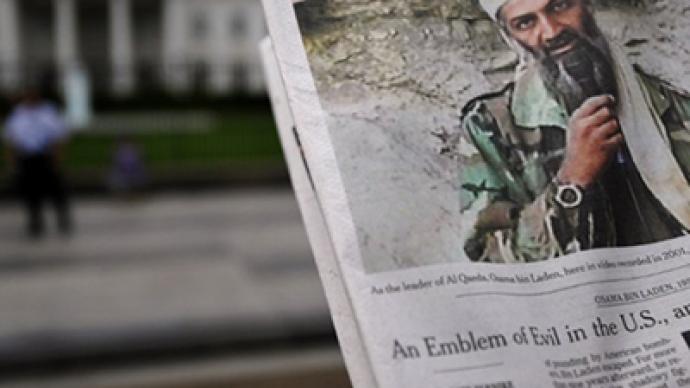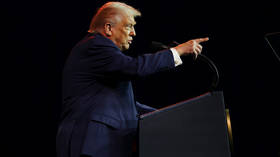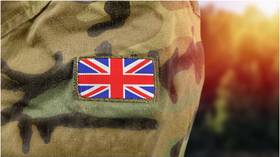Bin Laden case lacks transparency – political analyst

As the world is absorbing the news of Osama Bin Laden’s killing by the US military, the credibility of the evidence provided by Washington is being questioned.
Bin Laden’s death was announced by US President Barack Obama late on May 1. Further reports stated that Bin Laden had been buried at sea, as an unnamed US official told CNN. That left the world with little evidence and gave grounds for a new surge of suspicion.There has been a lot of confusion over the last six months, since Bin Laden was sighted by the US last time, says Ahmed Quraishi, Senior Research Fellow at the Pakistani think-tank “Project for Pakistan in 21st Century”. The confusion was further heated by suspicion that the US was using Bin Laden as a bogeyman to perpetuate its meddling and interference in the region. The Pakistani military personnel that Ahmed Quraishi talked to were always very skeptical of the strength of Al-Qaeda in Afghanistan and Pakistan, as estimated by Washington. For the last two years there has been a strong conviction that Al-Qaeda, which has no more than 100 people in the region, is incapable of carrying out any major attacks.“There are a lot of questions regarding the location where he [Bin Laden] was found. The location is a very small town and it is impossible for a high-valued target to be there for a long time, especially for six months,” says Quraishi.“There was a strong element of transparency, for example, when Saddam Hussein was caught,” Quraishi continues. “There were pictures, videos and footage released. In this case the element of transparency is completely non-existent. The one picture that has been circulated right now is hazy, it is not clear. There is no video footage. And now we have this story how his body has been disposed of. It would raise a lot of skepticism.” Nevertheless, the news of Bin Laden’s killing is beneficial for the Obama administration, the CIA and American military in Afghanistan, Quraishi thinks. The US has been paving its way to get out of Afghanistan, where they have gone through a very negative experience. From the economical and political perspectives, Washington is no more in position to sustain any major enemies, especially multi-front. They want a break before they find another common enemy to consolidate their military powers against, concludes Quraishi.
James Corbett, editor of the Corbett Report, says he does not see why people should believe the news of Osama Bin Laden’s death this particular time.“Osama Bin Laden’s death has been announced a number of times and I don’t see why we should take this pronouncement any more seriously than previous pronouncements, especially considering the complete and utter lack of evidence that has so far been produced to show that Osama Bin Laden or anyone resembling that description was actually killed yesterday,” Corbett says.And whether he actually was killed or not, Corbett continued, it looks more like “a ploy of the CIA getting rid of one of the old assets.”“Whether he actually did die yesterday or he has been dead for years, or whatever the case may be, this is simply a discarding war on the terror bogeyman who was no longer scaring the populus.”
Paul Lashmar, an investigative journalist and lecturer at London's Brunel University, believes that Bin Laden’s death is a landmark moment and hopes it is the beginning of the end for the Islamist terrorists. “There is going to be a lot of angry supporters of Bin Laden across the world. It might encourage some of them to go out and do something immediately. In the long run, I think it is damaging to the Al-Qaeda-style terrorism,” says Lashmar. “I would hope we have learnt some lessons since Bin Laden. When Bin Laden was sitting in his compound, part of his mind was thinking about the corrupt relationships between the West and the movements in Saudi Arabia. Supporting corrupt dictators has to be in the past for the West."
Stephen Lendman, a radio host and author and an outspoken critic of American foreign policy says that announcements like this are always strategically timed. ”We have a terrible economy at home, there are millions of people suffering, America is lurching from one war to another. Now we are getting involved in Syria after just getting involved in Libya. We could get involved in Yemen. The public is getting a little bit tired of this,” he said. “We are spending such massive amounts of money on fighting these wars, but ignoring public need, so it’s strategic planning to booster the Obama approval rating.”
“It would have been a huge blow eight or nine years ago, but Bin Laden has been rendered irrelevant by the changes of the last decade,” says Professor Mark Almond, an international relations expert from Bilkent University based in Ankara. Professor Almond is unsure if Bin Laden's death will reduce the global terrorism threat as Bin Laden has been mostly autonomous in his actions. “Ironically, Pakistan is probably one of the countries that will become diabolized as a result of this event,” said Professor Almond talking about the consequences of the US’ successful operation. “Bin Laden seems to have had a spacious mansion there for several years. Colonel Gaddafi has also been the Mad Dog in American demonology for 35 years. But now we are in shortage of replacements. This is the sign that America’s success of finding and killing Bin Laden is a new story that is already losing its legs, because in future we might see him simply as a temporary figure, who was the focus of attention and now has passed into limbo.”
Brian Becker from the anti-war Answer coalition says that the US government will use this event as a pretext for an aggressive foreign policy, just as it did after the September 11 tragedy.“Our coalition started three days [after 9/11] because we believed that Bush administration would take advantage of this heinous crime to carry out an unstated but very real foreign policy to invade Afghanistan, invade Iraq, carry out other regime changes,” he said. “You can see the atmosphere in Washington is similar right now. This is not ending the war on terror, but is going to be an accelerant to the so-called war on terror.”
Speaking about why the US military has not yet released pictures to prove the death of bin Laden, independent journalist and peace activist Moe Seager says that there has been such a lack of honesty and transparency on behalf of the US government and military since they started military operations in Afghanistan, Iraq and Pakistan, that it is even more surprising that they would want to withhold the evidence now.“Mr. Obama has been low in the ratings. He and his Cabinet, and Wall Street, have failed to rectify the great recession in the United States,” Seager said. “This death may serve as a circus. If, in fact, they have simply masterminded this as a hoax and it is discovered, Mr. Obama will lose the upcoming election.”
Author and anti-war activist Sara Flounders says that so far the world knows little about the top-secret operation which brought about bin Laden’s death, except what the US officials have been telling the public so far. “We do know that it will be used to justify further wars, greater repression at home, intensifying repression and attacks on the Muslim population here in the US, and more targeted assassinations against political opponents,” she said. “This is true in Libya, in Iraq or Pakistan and Afghanistan. It means expanding US wars. It is important to look back at US reason and the manufacturing of war, and it really flows from the military-oil-banking conglomerates here that need war, that need the conquest of new areas, that need the astronomical military budgets.”
Ivan Eland, a political analyst and senior fellow at the Independent Institute in Washington, says that it is likely that the Pakistani military was aware of Osama bin Laden’s whereabouts, since the compound where he lived is located less than one kilometer away from a Pakistan Military Academy.“I think there is some possibility that the Pakistani government was saving him as their ace in the hole, because they knew that’s what the United States wanted,” he said. “If the United States got him, they would be less willing to provide billions of dollars of aid and other support to the Pakistani government. The United States has always been a victim of Pakistan supporting the Taliban under the table and perhaps even hiding bin Laden, simply because they are manipulating the United States in that part of the region.”














